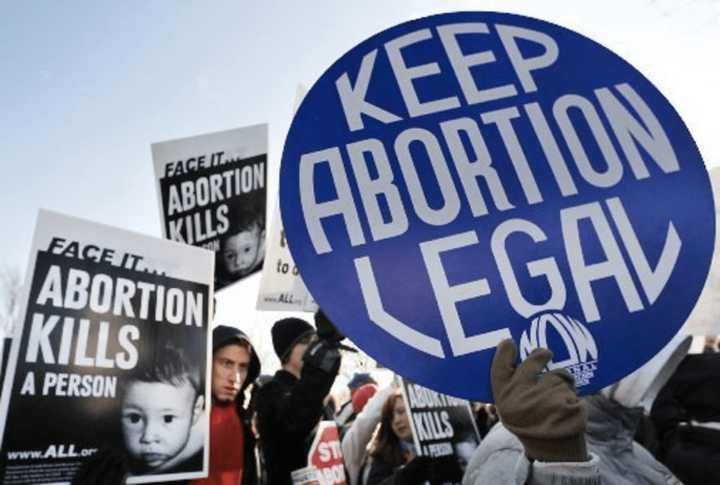A man slept on the Frederick Douglass Bridge Friday night, June 24, after hoisting a flag that read "Don't tread on my uterus." Guido Reichstadter, of Florida climbed the D.C. bridge just after 11 a.m. shortly after the the court released its ruling.
Police closed the bridge and put an inflatable air cushion below him in case he fell, NBC4 reported. Reichstadter posted photos to Twitter from atop the bridge throughout Friday night and Saturday morning. He was still atop the bridge as of noon on Saturday.
Police arrested Reichstadter earlier this month after he chained himself to a metal fence in from of the Supreme Court to protest the ruling, Facebook posts show. A preliminary draft of the 6-3 opinion leaked weeks ago.
Thousands of protestors took to the streets in Washington, D.C., on Friday. More protests are planned throughout the weekend across the country.
A small group of people stood near Supreme Court Justice Clarence Thomas' home in Fairfax Station on Friday night and banged drums, The Washington Post reported. Fairfax County police officers parked out front.
Though, some rejoiced in the ruling. The Washington Post reported that several people sipped champagne outside of the Supreme Court on Friday.
Virginia Gov. Glenn Youngkin was one of those elated by the decision. He tweeted Friday that he had asked fellow Republican state lawmakers to draft legislation that would ban abortion 15 weeks after conception. He said he would carve out exceptions for instances of rape, incest, or if the mother's life was at risk.
Youngkin said he hopes Richmond lawmakers will pass it when they return in January.
Twenty-two other states will likely ban or restrict when a woman can seek to end her pregnancy, NPR reported. Kentucky, Louisiana, and South Dakota had laws that triggered immediately after the ruling.
Youngkin also tweeted that he respected people's right to protest, but said he would not allow violence or lawlessness.
Click here to follow Daily Voice Westminster and receive free news updates.
